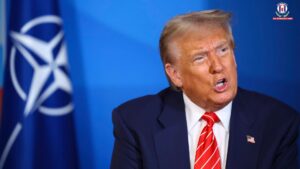
U.S. President Donald Trump has accused China of reneging on a major aircraft purchase agreement with Boeing, intensifying an already heated trade standoff between the world’s two largest economies. According to Trump, Chinese authorities recently directed domestic airlines to halt new deliveries from the American aerospace giant—a move seen by many as a direct retaliation to Washington’s latest tariff hike on Chinese imports.
The directive from Beijing reportedly extends beyond aircraft deliveries to include a suspension of purchases of parts and equipment tied to Boeing jets and other U.S. aerospace firms. While no official statement has been released by Chinese regulators, analysts suggest the move reflects mounting frustrations in Beijing over what it views as unfair trade practices and an increasingly hostile policy stance from Washington.
President Trump, speaking during a press briefing, criticized China’s decision as a “serious violation of prior trade understandings,” and claimed it undermines business confidence in the ongoing bilateral economic relationship. He also took aim at former U.S. President Joe Biden, accusing him of failing to enforce commitments made during a prior trade truce negotiated during Trump’s first term.
That earlier agreement, often referred to as Phase One, included pledges by China to ramp up purchases of American goods, particularly agricultural products. Trump asserted that the deal led to $28 billion in aid disbursed to U.S. farmers, funded through tariff revenues, which he described as a reward for their patience during the trade conflict.
The latest developments come amid a dramatic escalation in the trade war, with the Trump administration announcing sweeping tariffs on Chinese goods, raising import levies to 145 percent across a wide range of products. In a tit-for-tat move, China imposed countermeasures, including a 125 percent tariff on numerous U.S. exports, from agricultural produce to machinery and chemicals.
The potential collapse of the Boeing deal could have far-reaching consequences for the U.S. aerospace industry, which has long depended on Chinese markets for growth. Experts warn that the impasse may also deepen existing tensions in other strategic sectors, including technology and energy.














No Comments: